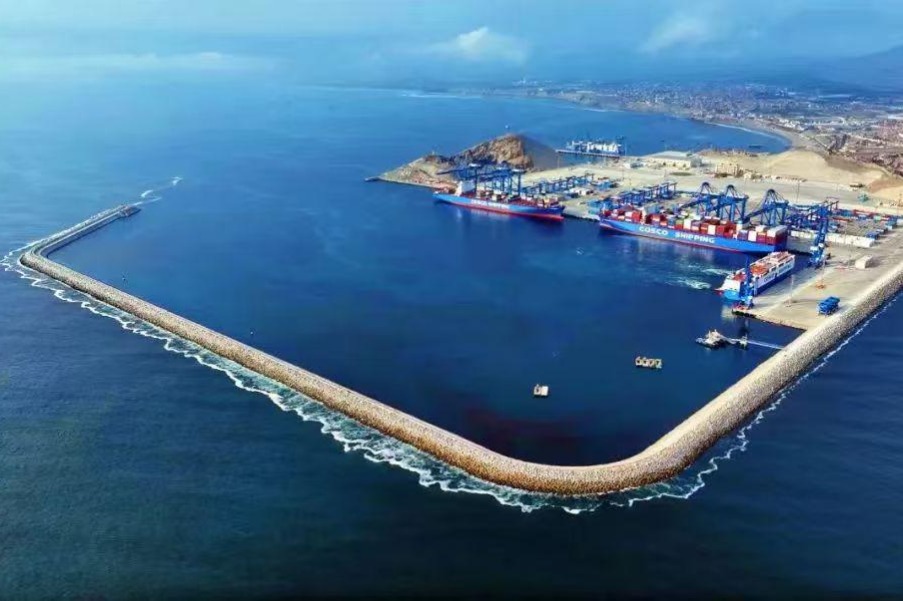Smallholders have big role to play


Smallholder farmers are the bedrock of rural economies, be it in China or globally. Operating on limited land and resources, their combined contributions to food security, economic growth, and environmental sustainability are significant. Smallholder farms account for over 90 percent of agricultural production in China, while providing employment to hundreds of millions of rural workers. Their success is pivotal to improving local livelihoods and achieving broader national objectives such as rural vitalization and food sovereignty.
In 2024, China made significant strides in advancing rural vitalization. Efforts to modernize agriculture, enhance rural infrastructure and improve farmers' livelihoods have helped reduce the urban-rural divide and bolster food security. These transformations include the integration of innovative technologies, the expansion of rural industries and increased market access for smallholder farmers. Despite the progress that has been made, however, some challenges persist. For instance, climate change and natural disasters pose significant risks to China's food systems. The growing frequency of extreme weather events — such as droughts, floods, and heatwaves — continues to threaten agricultural productivity and rural incomes, highlighting the urgent need for stronger climate resilience measures and targeted investments to safeguard rural communities.
It is also important to note that intensive agricultural production has had a negative impact on natural resources and environmental management. As smallholders are included into agricultural value chains through the cooperative model, there is need to better harness institutional and technical innovations for the desired green transition.
The empowerment of smallholders is central to these transformations. When equipped with the right tools and opportunities, smallholders drive economic activity, ensure the judicious use of natural resources and ensure food security for growing populations. By placing smallholders at the center of its rural development agenda, China is demonstrating how inclusive growth can address systemic challenges while creating sustainable and resilient rural economies. These efforts underscore the pivotal role smallholders play in bridging the gap between innovation and grassroots transformation.
Over the past four decades, the partnership between the International Fund for Agricultural Development and China has shown what can be achieved when resources, innovation, and shared expertise come together. IFAD-supported initiatives in China's rural areas have empowered smallholders, delivering higher incomes, stronger rural communities, and a more resilient agricultural sector. China's sustained commitment to uplift its rural areas combined with the IFAD's global experience and technical know-how provides a blueprint for success that can inspire other nations.
This enduring partnership will not stop here; it will continue to deepen and expand in the years to come. The newly approved Country Strategic Opportunities Programme for 2025-2030 marks the next chapter in this collaboration. Developed in close partnership with the government of China and in consultation with key in-country development partners, the COSOP is aligned to the government's development agenda and outlines strategic pathways to unlock the untapped potential of rural areas to sustain the gains of eradicating extreme poverty in the country. It focuses on enhancing rural livelihoods, advancing climate-resilient agriculture and strengthening rural institutions and systems. Through these targeted investments, the IFAD and China are showcasing a replicable and scalable model for sustainable rural development that has global significance.
The foundation of rural vitalization rests on fostering inclusive growth and improving livelihoods. Indeed, a key pillar of the strategy is to achieve fully rejuvenated rural areas with well-off farmers and strong agricultural sectors through policies that encourage small-scale farmers to adopt modern farming and agricultural practices. Raising smallholder incomes is a crucial aspect of this transformation because only by raising incomes, creating jobs and strengthening value chains can rural communities prosper. For example, in Yunnan and Hunan provinces, IFAD-supported projects have empowered rural cooperatives to help farmers achieve economies of scale, access better markets, and secure fair prices for their produce.
Simultaneously, climate-smart approaches — including sustainable farming techniques, climate-resilient infrastructure and drought-tolerant crops — are enabling farmers to adapt to the growing risks posed by climate change. These efforts enhance resilience and support long-term environmental sustainability.
The new program will also place greater emphasis on South-South and Triangular Cooperation as a means to accelerate progress in rural transformation and the eradication of poverty globally. By facilitating the exchange of expertise, technologies and innovations among countries of the Global South, the IFAD and China are fostering partnerships that deliver shared solutions to common challenges.
China's achievements in rural vitalization and poverty reduction offer valuable insights for replication. By placing smallholder farmers at the center of its development agenda, China demonstrates that economic growth and social equity can be advanced in tandem. Investing in rural areas does more than lift local livelihoods — it strengthens food security, drives climate action and fosters economic stability at both the national and global levels.
Rural vitalization is not merely a national priority in China; it makes a huge contribution to the global rural transformation dynamics. By investing in smallholder farmers, we are laying the foundation for a more equitable, resilient and prosperous world. The IFAD-China partnership exemplifies what can be accomplished through sustained collaboration, innovation, and investment. Together, we can demonstrate that rural areas are vibrant engines of opportunity, benefiting farmers, economies, and societies at large. Now is the time to act — to empower smallholders, transform rural communities and build a future where no one is left behind.
The author is IFAD's representative in China and head of Asia and the Pacific Regional Centre for South-South and Triangular Cooperation.
The views don't necessarily reflect those of China Daily.
If you have a specific expertise, or would like to share your thought about our stories, then send us your writings at opinion@chinadaily.com.cn, and comment@chinadaily.com.cn.


































